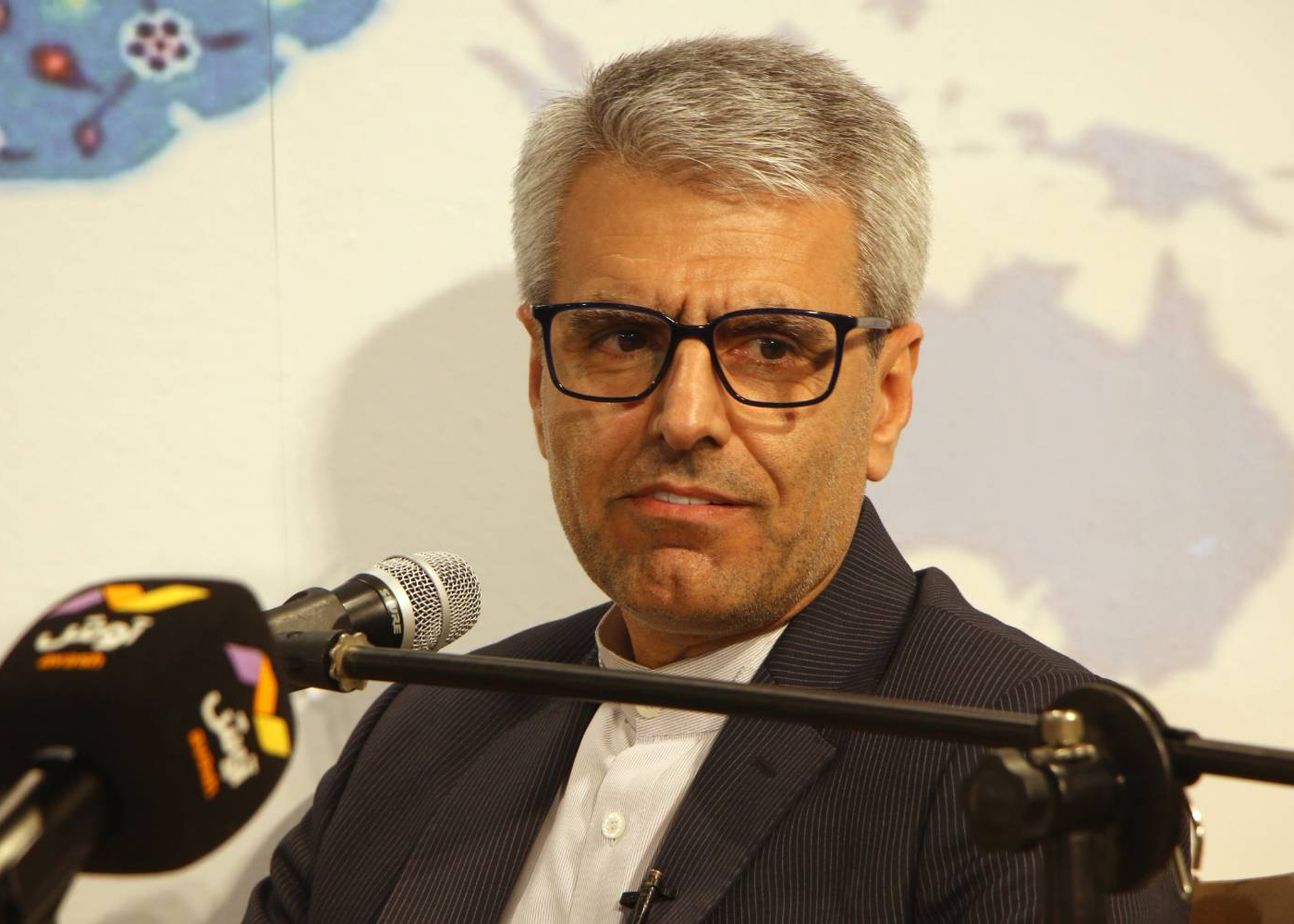
Foreign Ministry Spokesperson: Reading “Kelidar” Is as Important as Diplomatic Knowledge
2025-05-14 11:43
On the seventh day of the Tehran International Book Fair, the spokesperson of the Ministry of Foreign Affairs emphasized the importance of diplomats studying various fields during the “Books and Diplomacy” panel.
According to the press office of the 36th Tehran International Book Fair, Esmaeil Baghaei, the Foreign Ministry spokesperson, attended the “Books and Diplomacy” panel at the Foreign Ministry’s publishing booth. He said: “Entering the book fair brought back memories from the 1990s when I used to work at the fair and was paid in books for arranging them.”
He recalled: “The first book I received as a gift was in second grade from my teacher Mr. Gholamhossein Yusefi in Yazd. It was Good Stories for Good Children by Azari Yazdi. Later, I read Kalila and Dimna and Qabusnameh, which I enjoyed.”
Baghaei mentioned The Jackal on the Bear as one of the moral tales from his childhood. “I tend to read multiple books at once and take a long time to finish them. The book I read eight months before assuming my current role was More Iranian Than Nahal Tajadod.”
He believes the more officials know about their culture and history, the better they can protect it. “For instance, knowing our situation over the past century and how far we've come matters. Few countries have been as involved in diplomatic negotiations as we have.”
He emphasized the importance of literature, stating: “Just as diplomatic knowledge is crucial, novels like Kelidar and The Empty Place of Soluch are equally important.”
Baghaei, who enjoys children’s and young adult literature, added: “Such books help us understand the psyche of our people. This kind of knowledge ensures we don’t waver during challenges.”
Books That Help Iranian Diplomats in Negotiations
Citing the JCPOA negotiations, he said: “Understanding the other party’s mindset is key. Books like The Experience of a Crisis—written from the other side’s perspective—and America’s Negotiating Behavior have been helpful to me.”
He noted: “Writing is also a way to train oneself for reading. Words are sacred—changing a single word can deprive a country of its rights or save it. For example, in UN Resolution 2231 regarding missiles, careful wording lifted an unfair obligation.”
Baghaei recalled a time at the UN when a technical issue in maritime law arose: “Using a word I remembered from The Grapes of Wrath by William Faulkner, which I read the night before, helped me resolve the issue.”
He commented on how people in other countries read more: “In subways and buses, people still read printed books. Unfortunately, reading hasn’t yet become embedded in our culture, and we must work on that from childhood.”
Regarding book subsidies, he said: “If authors' rights aren’t respected, book production will be disrupted.”
Baghaei believes timely decision-making and learning from past experiences are crucial in international affairs. “Books by Mohammad Ali Foroughi and Abdullah Ansari offer valuable lessons. For instance, we missed the Versailles Peace Conference entirely. Foroughi’s presence at the San Francisco Conference is a lesson in seizing opportunities. Ansari’s memoirs also highlight the unrealistic attitudes of our delegation.”
He stressed: “Viewing history as a process provides essential insights for diplomatic decision-making.”
Baghaei believes today’s Iranian diplomats are more pragmatic. “To understand the past 46 years or even today, we need a 150-year perspective. Despite declaring neutrality in both World Wars, we were occupied. In 1953, a coup was imposed on us. Our lost values were security and independence.”
He added: “Those experiences pushed us toward independence and self-reliance. The eight-year war, though devastating, was instructive. We lost our best youth while the world refused to sell us even a single bullet. That taught us to rely on ourselves.”
He praised Iran’s resilience under sanctions and said: “I always remind myself to be a good representative of the people, because they are my only support in negotiations.”
Negotiation Status Still Unclear
Regarding Iran-U.S. negotiations, he stated: “Our approach has been serious. Negotiation is not a tool for blame. We represent the people and must protect national investments. Some claim our nuclear program led us to talks, but it began much earlier—in 1970.”
He explained: “At that time, Stanford University proposed building nine reactors in Iran. The first was built with 90% enriched fuel by Americans. Before the Islamic Revolution, we had major contracts with the UK and Germany. Germans completed 70% of the Bushehr reactor but left it unfinished. We had to complete it ourselves.”
Baghaei emphasized: “We are a signatory of the Non-Proliferation Treaty (NPT), with both rights and obligations. The question is: should we accept obligations without our rights being honored?”
He continued: “Our scientists enriched uranium from 3.67% to 20%, but such realities are often ignored. The only nuclear-armed country with a clear history of aggression is Israel—yet no one questions its arsenal.”
He concluded: “It’s not fair to deny a peaceful nation nuclear technology. These double standards are unacceptable. Our goal is to secure our rights and lift sanctions to benefit economically.”
“The negotiation process is unpredictable, but we proceed cautiously. The other side must avoid actions that raise suspicion,” he warned.
He added: “Just days ago, new sanctions were imposed on us. It’s unjust, but we’re moving forward carefully.”
The 36th Tehran International Book Fair began on May 6 and will continue through May 16, 2025, at the Imam Khomeini Mosalla under the slogan Let’s Read for Iran. The online section is available at book.icfi.ir for virtual purchases.



 Return
Return

